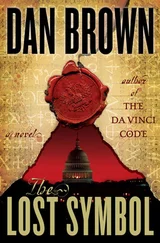Richard Edgcumbe - Byron - The Last Phase
Здесь есть возможность читать онлайн «Richard Edgcumbe - Byron - The Last Phase» — ознакомительный отрывок электронной книги совершенно бесплатно, а после прочтения отрывка купить полную версию. В некоторых случаях можно слушать аудио, скачать через торрент в формате fb2 и присутствует краткое содержание. Жанр: literature_19, Поэзия, foreign_antique, foreign_prose, foreign_poetry, Биографии и Мемуары, на английском языке. Описание произведения, (предисловие) а так же отзывы посетителей доступны на портале библиотеки ЛибКат.
- Название:Byron: The Last Phase
- Автор:
- Жанр:
- Год:неизвестен
- ISBN:нет данных
- Рейтинг книги:3 / 5. Голосов: 1
-
Избранное:Добавить в избранное
- Отзывы:
-
Ваша оценка:
- 60
- 1
- 2
- 3
- 4
- 5
Byron: The Last Phase: краткое содержание, описание и аннотация
Предлагаем к чтению аннотацию, описание, краткое содержание или предисловие (зависит от того, что написал сам автор книги «Byron: The Last Phase»). Если вы не нашли необходимую информацию о книге — напишите в комментариях, мы постараемся отыскать её.
Byron: The Last Phase — читать онлайн ознакомительный отрывок
Ниже представлен текст книги, разбитый по страницам. Система сохранения места последней прочитанной страницы, позволяет с удобством читать онлайн бесплатно книгу «Byron: The Last Phase», без необходимости каждый раз заново искать на чём Вы остановились. Поставьте закладку, и сможете в любой момент перейти на страницу, на которой закончили чтение.
Интервал:
Закладка:
Such, then, was the residence which was destined to be the last home of the author of ‘Childe Harold!’
Byron had scarcely reached the modest apartment which had been assigned to him, when he was greeted by the tumultuous visits of the Primates and chiefs. All the chieftains of Western Greece – that is to say, the mountainous districts occupied by the Greeks – were now collected at Missolonghi in a general assembly, together with many of the Primates of the same districts. Mavrocordato, at that time Governor-General of the province, was President of the Assembly, with a bodyguard of 5,000 armed men. The first object of this assembly, says Gamba, was to organize the military forces, the assignment of the soldiers’ pay, and the establishment of the national constitution and some regular form of government for Western Greece. The chieftains were not all of them well disposed towards Mavrocordato; the soldiers were badly paid – in fact, hardly paid at all; and so great was the fear of disturbances, quarrels, and even of a civil war, that without the influence of Prince Mavrocordato, and the presence of Byron with his money, there could have been no harmony.
After the departure of the Turks, who had blockaded Missolonghi, there was a general feeling of security, and no one expected them to return before the spring. The Peloponnesus, with exception of the castles of the Morea and of Patras, of Modon and of Covon, was in the hands of the Greeks. The northern shore of the Gulf of Lepanto, with the exception of the two castles, were also in Greek hands. They swayed Bœotia and Attica, together with the whole isthmus of Corinth.
Such was the state of affairs when Byron arrived on that dismal swamp. The position in which he found himself required much skill and tact; for the dissension among the various leaders in other parts of Greece was in its bitterest phase, and public opinion everywhere was dead against the executive body. It would have been fatal to the prestige of Byron if, in a moment of impetuosity, he had cast in his lot with some particular faction. It was his fixed intention, as it was clearly his best policy, to reconcile differences, and to bring the contending factions closer together. His influence amongst all parties was daily increasing, and everyone believed that Byron would eventually be able to bring discordant voices into harmony, and pave the way for the formation of a strong, patriotic Government. He faced the situation bravely, and closed his ears to the unworthy squabbles of ambitious cliques. He made arrangements, with the best assistance at hand, to turn the expected loan from England to the best account, in order to insure the freedom and independence of Greece.
The first day of his arrival at Missolonghi was signalized by an act of grace. A Turk, who had fallen into the hands of some Greek sailors, was released by Byron’s orders, and, having been clothed and fed at his own expense, was given quarters at Byron’s house until an opportunity occurred of sending him in freedom to Patras. About a fortnight later, hearing that four Turkish prisoners were at Missolonghi in a state of destitution, Byron caused them to be set at liberty, and sent them to Usouff Pacha at Patras, with a letter which, though it has been often printed, deserves a place in this narrative:
‘Highness!
‘A vessel, in which a friend and some domestics of mine were embarked, was detained a few days ago, and released by order of your Highness. I have now to thank you, not for liberating the vessel, which as carrying a neutral flag, and being under British protection, no one had a right to detain, but for having treated my friends with so much kindness while they were in your hands.
‘In the hope that it may not be altogether displeasing to your Highness, I have requested the Governor of this place to release four Turkish prisoners, and he has humanely consented to do so. I lose no time, therefore, in sending them back, in order to make as early a return as I could, for your courtesy on the late occasion. These prisoners are liberated without any conditions; but should the circumstance find a place in your recollection, I venture to beg that your Highness will treat such Greeks as may henceforth fall into your hands, with humanity; more especially as the horrors of war are sufficiently great in themselves, without being aggravated by wanton cruelties on either side.
‘Noel Byron.
‘Missolonghi,
‘ January 23, 1824 .’
This letter was the keynote of Byron’s policy during the remainder of his life. The horrors of war were sufficient in themselves without that unnecessary cruelty so often exhibited by Eastern nations in their treatment of prisoners of war.
The following account of an incident connected with Byron’s clemency to a prisoner pictures the state of things at Missolonghi.
‘This evening,’ says Gamba, ‘whilst Mavrocordato was with Lord Byron, two sailors belonging to the privateer which had taken the Turk came into the room, demanding in an insolent tone that their prisoner should be delivered up to them. Lord Byron refused; their importunity became more violent, and they refused to leave the room without their Turk (such was their expression) on which Lord Byron, presenting a pistol at the intruders, threatened to proceed to extremities unless they instantly retired. The sailors withdrew, but Byron complained to Mavrocordato of his want of authority, and said to him: “If your Government cannot protect me in my own house, I will find means to protect myself.” From that time Lord Byron retained a Suliote guard in his house.’
During the winter preparations were being made for an expedition against Lepanto, a fortress which, if captured by the Greeks, would facilitate the siege of Patras. Its fortifications were constructed on the slope of a hill, forming a triangle, the base of which was close to the sea. Its walls were of Venetian construction, but without ditches. As portions of its walls were commanded by a neighbouring hill, its siege would have proved a very arduous undertaking even with regular troops; but with raw Greek levies its reduction, except by famine, would have been almost impossible. On January 14, 1824, Colonel Stanhope writes to Mr. Bowring in the following terms: ‘Lord Byron has taken 500 Suliotes into pay. He burns with military ardour and chivalry, and will proceed with the expedition to Lepanto.’ Circumstances were, however, against this expedition from the very beginning. Great hopes had been entertained by Lord Byron and by Colonel Stanhope that the Suliotes would conform to discipline, and that Mr. Parry, who had been sent out by the Greek Committee with stores and ammunition, would on his arrival organize the artillery, and manufacture Congreve rockets – a projectile of which the Turks were said to be in great awe.
Parry arrived at Missolonghi early in February, on board the brig Anna , which had been chartered by the London Greek Committee. He brought cannons, ammunition, printing-presses, medicines, and all the apparatus necessary for the establishment of a military laboratory. Several English mechanics came with him, and some English, German, and Swedish gentlemen, who wished to serve the Greek cause.
Mr. (or, as he was afterwards called) Major, Parry was a peculiar person in every way. He had at one time served as a shipwright, then as Firemaster in the King’s service, and won favour with Byron through his buffoonery and plain speaking – two very useful qualifications in environments of stress and duplicity. When Byron appointed him Major in the Artillery Brigade, the best officers in the brigade tendered their resignations, stating that, while they would be proud to serve under Lord Byron, neither their honour nor the interests of the service would allow them to serve under a man who had no practical experience of military evolutions. The German officers also, who had previously served in the Prussian army, appealed against Parry’s appointment, and offered proofs of his ignorance of artillery. But Byron would not listen to complaints, which he attributed partly to jealousy and partly to German notions of etiquette, which seemed to him to be wholly out of place in a country where merit rather than former titles should regulate such appointments.
Читать дальшеИнтервал:
Закладка:
Похожие книги на «Byron: The Last Phase»
Представляем Вашему вниманию похожие книги на «Byron: The Last Phase» списком для выбора. Мы отобрали схожую по названию и смыслу литературу в надежде предоставить читателям больше вариантов отыскать новые, интересные, ещё непрочитанные произведения.
Обсуждение, отзывы о книге «Byron: The Last Phase» и просто собственные мнения читателей. Оставьте ваши комментарии, напишите, что Вы думаете о произведении, его смысле или главных героях. Укажите что конкретно понравилось, а что нет, и почему Вы так считаете.












